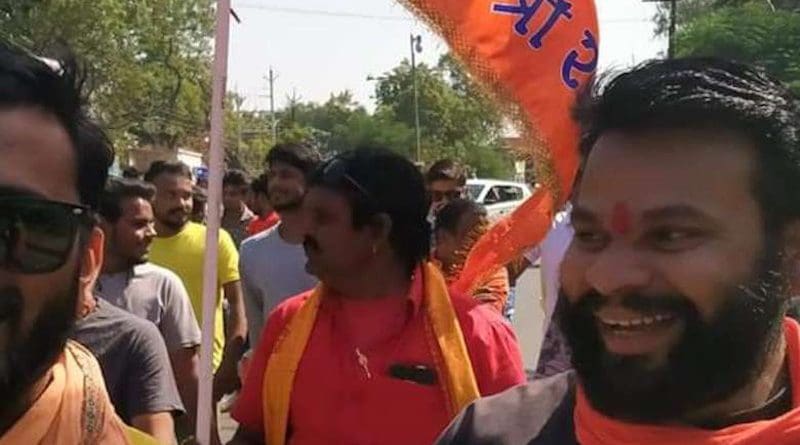Christians Decry Profiling Of Faith Leaders In Central India
By UCA News
(UCA News) — Christians in Madhya Pradesh state, central India, are outraged after government agencies began profiling Christian religious leaders working among indigenous people.
A revenue department official in the tribal-dominated Jhabua district summoned Christian leaders and asked them to provide personal information such as their appointment as a priest and the document related to their conversion.
The official letter also asked them to certify if they were converted through allurement or force as the government wants to initiate legal proceedings against illegal conversions.
A state law criminalizes religious conversion through allurement or force, making it an offense punishable with up to 10 years in prison.
The letter issued on Sept. 13 has also directed them to present details regarding their work in person before the official on Sept. 22 at noon.
“Our 16 pastors have received similar letters,” said Auxiliary Bishop Paul Muniya of Protestant Shalom Church in the district.
Christian leaders say their people face increased hostilities from right-wing Hindu groups opposed to their work in the district in their work among tribal people.
Earlier on Aug. 26, the additional superintendent of police, in a letter to police stations under him directed to assist activists from Vishwa Hindu Parishad (VHP), a right-wing Hindu outfit in their drive to close illegal Christian prayer halls and to contain illegal religious conversion activities in the district.
Senior Congress leader and former chief minister of Madhya Pradesh, Digvijay Singh, questioned the police move asking if the state police had handed over its right to discharge government duties to any private organization.
“Is this order in tune with the Indian constitution?” he asked.
The government action seemed to have stemmed from the complaints of right-wing Hindu groups to the district officials in January 2021.
In their complaint, VHP activists demanded the immediate shutdown of all churches in tribal areas of Madhya Pradesh and action against Christian priests and pastors involved in alleged religious conversions.
They also threatened to launch a special drive to demolish the churches if the administration failed to do so.
In March, VHP leaders also released the names of more than 50 priests and pastors and sought a probe into their roles, and accused them of being involved in illegal religious conversion.
The right-wing Hindu groups accuse Christian leaders of converting gullible indigenous people to Christianity under the facade of social and other charitable work.
Bishop Muniya said that they plan to speak to the district collector, the top official, to apprise him of the development.
“We will seek protection for our churches and other institution from the threat of right-wing Hindu activists,” told UCA News on Sept. 17.
“No doubt we will take all legal recourse against threats from Hindu activists,” he said adding: “We always wanted peace and harmony to ensure the common good of the people.”
Benedict Dhamore, a Catholic leader, said that there is “some worry among the Christians after the open threats from VHP activists against us.”
“Hindu activists want indigenous Christians to give up their Christian faith and return to the Hindu fold, but nobody is ready for that,” he told UCA News on Sept. 17.
“Christianity reached the district more than a century ago and people lived peacefully until the right-wing Hindu groups opposed Christianity,” he said with an appeal for peace to those issuing threats, “division only leads to disharmony and hatred.”
Father Rocky Shah, public relations officer of Jhabua diocese, told UCA News on Sept. 17 that “so far our priests have not got any such official letter from the revenue official.”
The priest said the Christian community contributed “immensely for the progress of the poor” in the district and denied allegations of illegal conversion.
“We don’t convert anyone illegally as was being made out,” he said.
Jhabua has a high percentage of Christians, who form some four percent of the district’s 1 million people. Hindus comprise 93 percent and Muslims about 2 percent.
In the rest of Madhya Pradesh, Christians account for less than 1 percent of the population, while the national average is only 2.3 percent.
Hindu right-wing groups target Christians and Muslims, terming them as foreign religions.However, they do not have hostility towards the Sikh, Jain and Buddhist religions developed in India.

